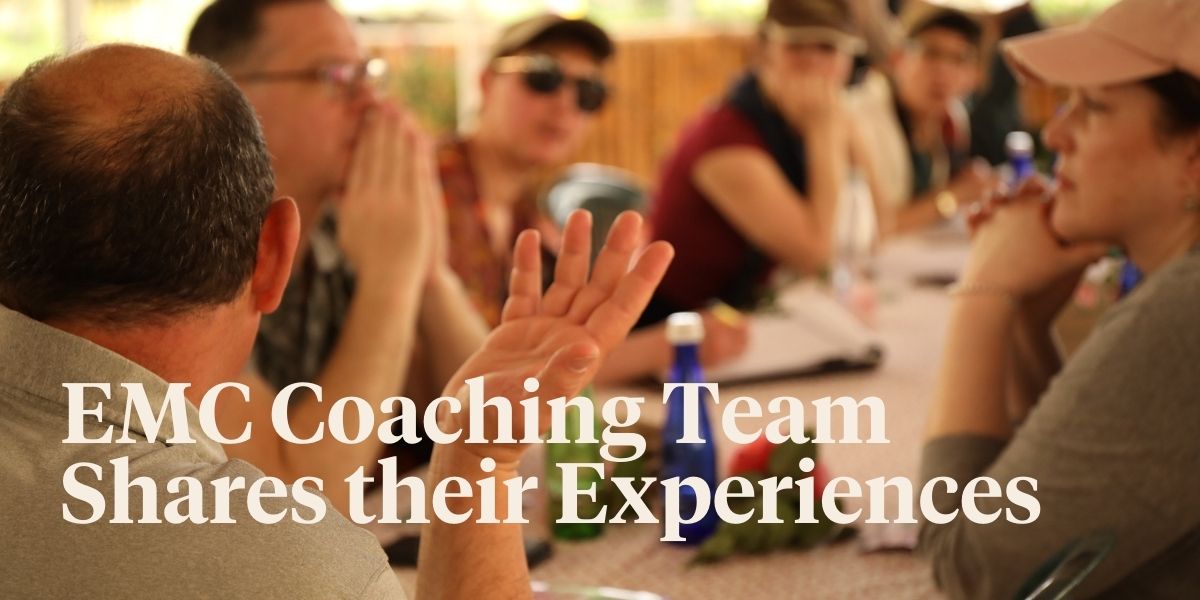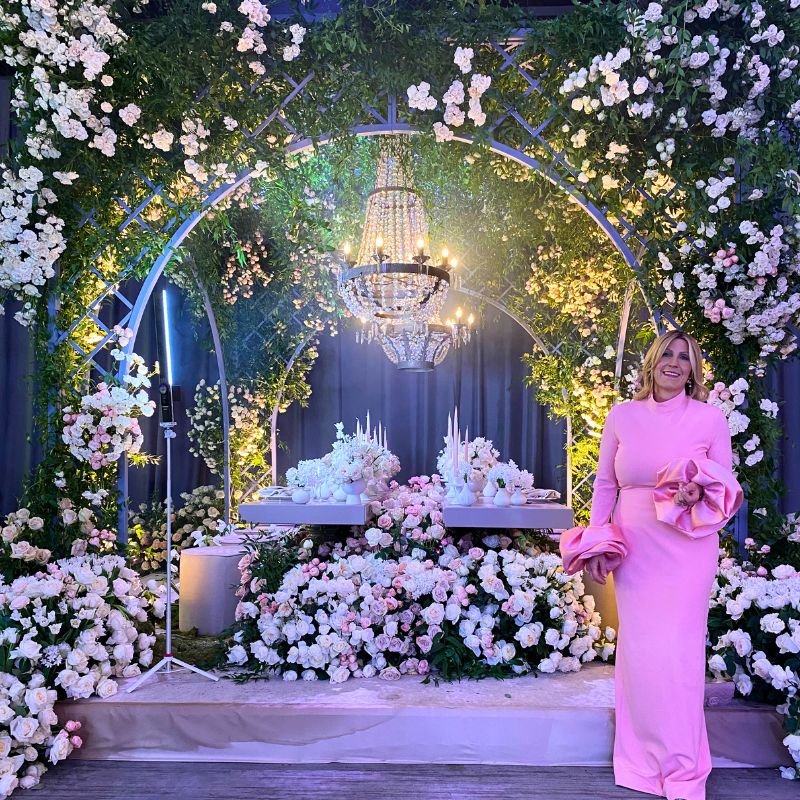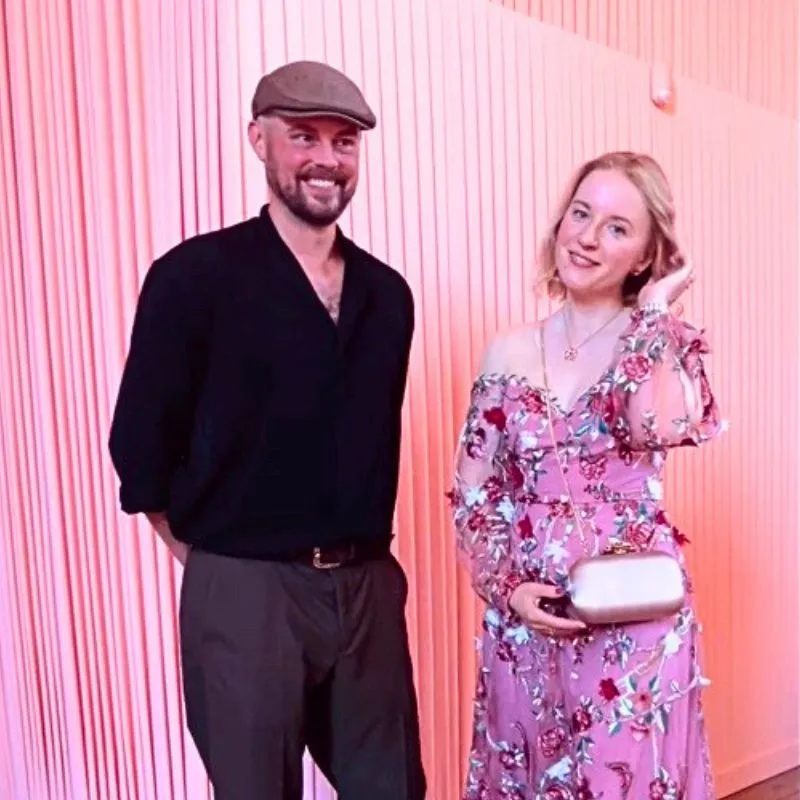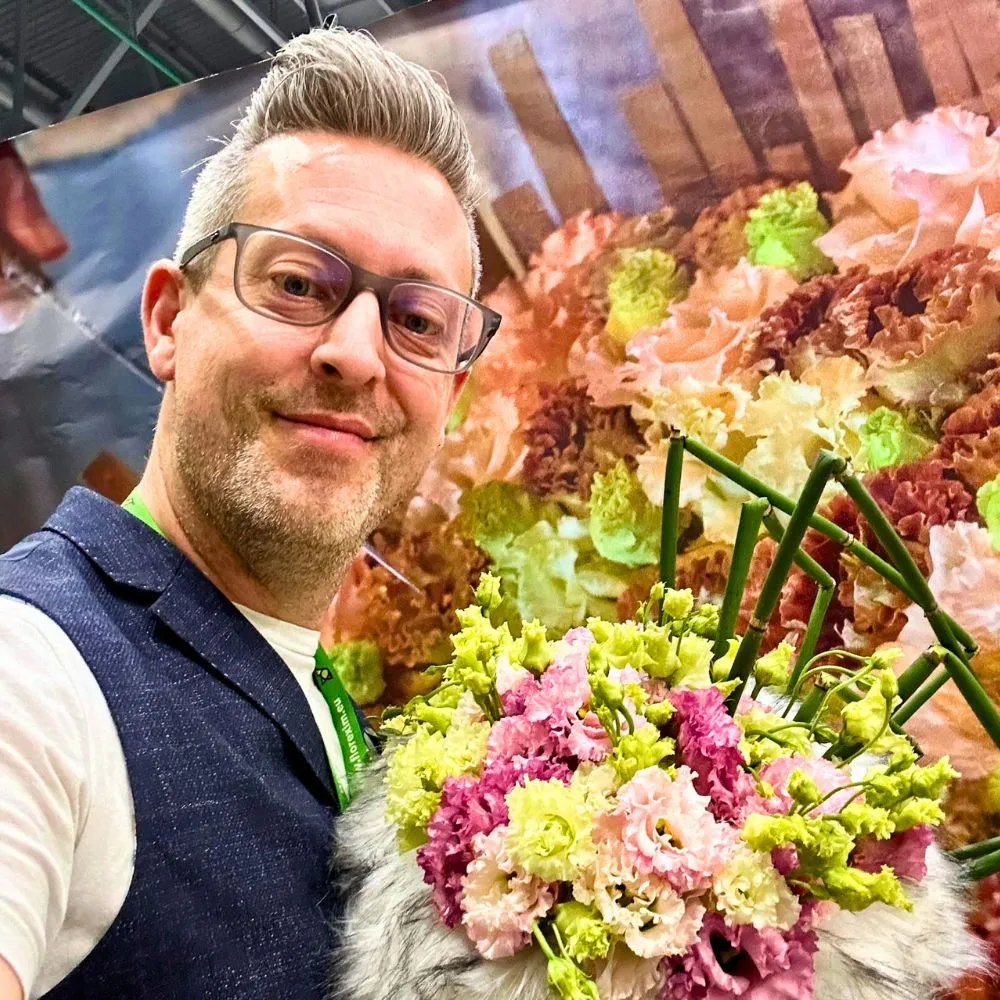Team EMC - Blended Interview
We have asked the Coaching Team of EMC, a group of very talented and dedicated designers and educators, to answer a few questions regarding our program. They all have a complex perspective over EMC, as they have all been students, graduates and are now the team that helps grow and nurture the new generations of students.
Their energy and involvement in making the entire program and the Blended Learning experience reality has been tremendous and, as we do in the classroom, we love and celebrate the diversity and uniqueness of our team. We put together a compilation, mixing, and blending their answers, in order to emphasize the one-of-a-kind melting pot of education that EMC nurtures within the core team of teachers.
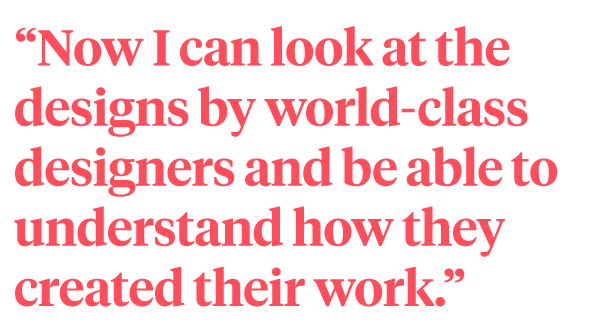
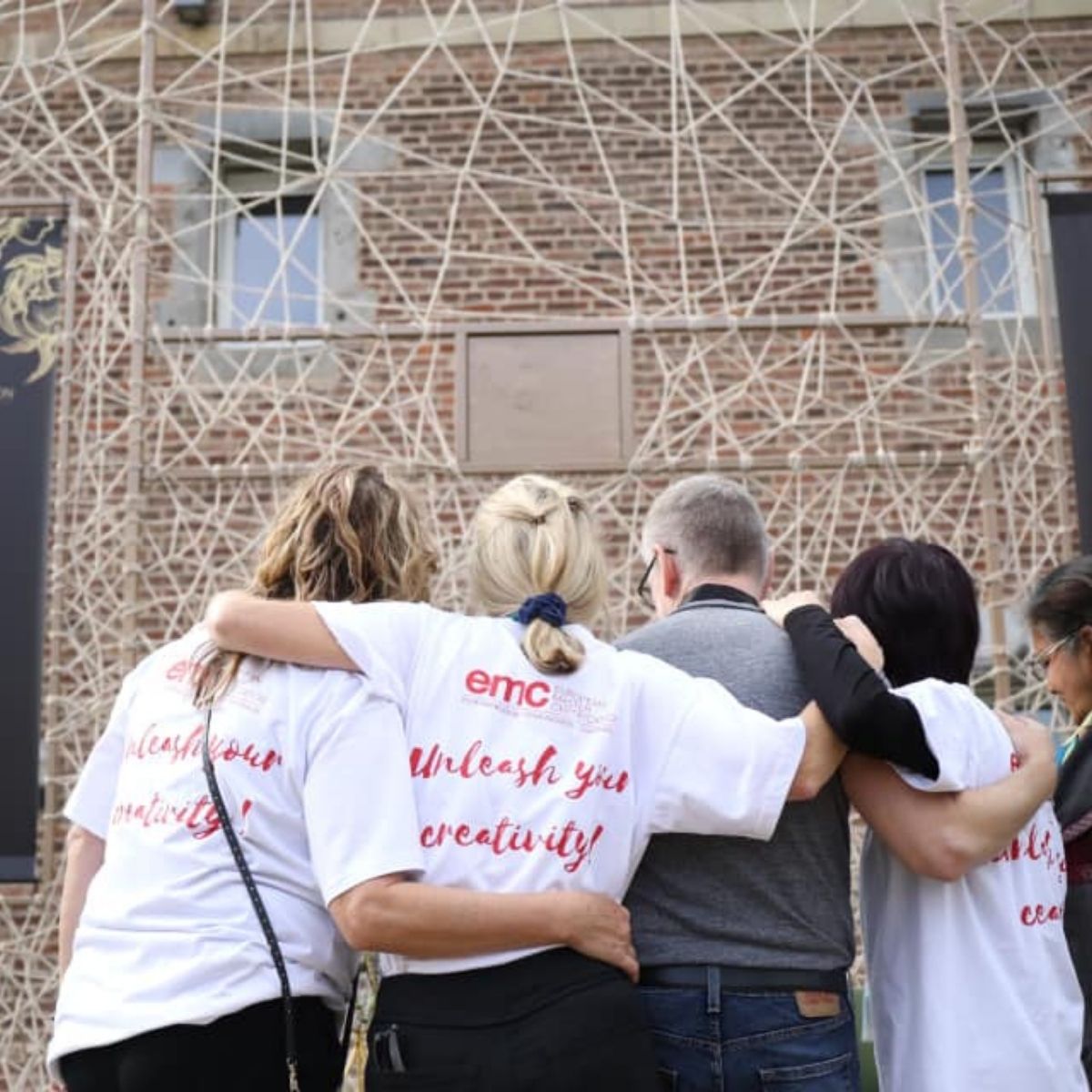
How did you grow through EMC/how did EMC help you grow?
"EMC fortified my existing knowledge and taught me to explore the vast opportunity of creative possibilities via observing the laws of nature (e.g. Fibonacci) and avoiding extraneous man-made rules to develop my own personal style. As an educational program, EMC promoted the importance of design theory and execution and provided confidence in my abilities as a designer and as an educator."
- Patti Bowman, EMC
"EMC introduced me to a depth in Floral Design. Although I pushed myself before EMC, I was only pushing myself to do things I was feeling comfortable with. EMC allowed me to see that I can continue growing as a designer, that I could enter a new creative path that was limitless, but also unknown. It was a bit scary at first, to try the unknown. I signed up for EMC during a time I was struggling as a designer, and when the time came that the course was starting, I thought, maybe I don’t need this. The status quo is good enough, what is it that I need to learn that I can’t learn from seeing what other designers are doing, or through freelancing, or by watching free Youtube videos. I am glad that I showed up on day 1 of Foundation because once I entered that classroom, I never questioned my choice to start the EMC journey."
- Jennifer Figge, EMC
How did EMC influence your way of thinking in your design process?
"EMC plays a significant role in the way I design now; it helped me develop a sense of the steps we need to follow to achieve a particular design."
- Jorge Uribe, AIFD EMC
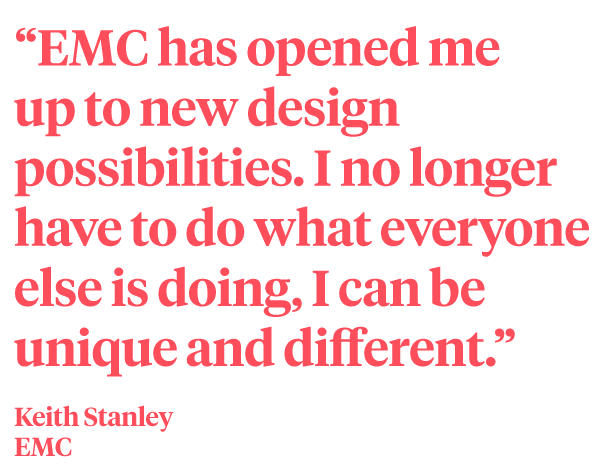
"It has been, from the beginning, a twist on any of the traditional ways of doing and thinking floral design. It has given me an intelligent and creative vision and perspective, where key concepts such as "visual impact" are the approaches with which it is possible to meet both: client and personal expectations."
– Francisca Pas Perez Aguirre, EMC
What are the strengths of the EMC experience?
"There's so many, but one of the most critical strengths of EMC is that provide us knowledge, which creates in us a sense of confidence and security."
- Jorge Uribe, AIFD EMC
"The strength of EMC is its leaders and teachers. That is the heart of the program. EMC wants all of its students to become leaders in the industry. There were many times that the teachers spent extra time with the students explaining and demonstrating a particular theory. My Mentors and Teachers in the program hold a very special place in my heart. We shared laughter and tears!"
- Jennifer Figge, EMC
What makes EMC unique?
"EMC has a sustainable yet versatile curriculum. Its curriculum is constantly evaluated, revamped, and improved as necessary so that it’s up-to-date and effective. It provides a highly motivating and exciting learning experience as well as a strong floral network. It is a program to challenge students both analytical and creative abilities to new discoveries and levels."
– Sherene S Tan, AIFD EMC
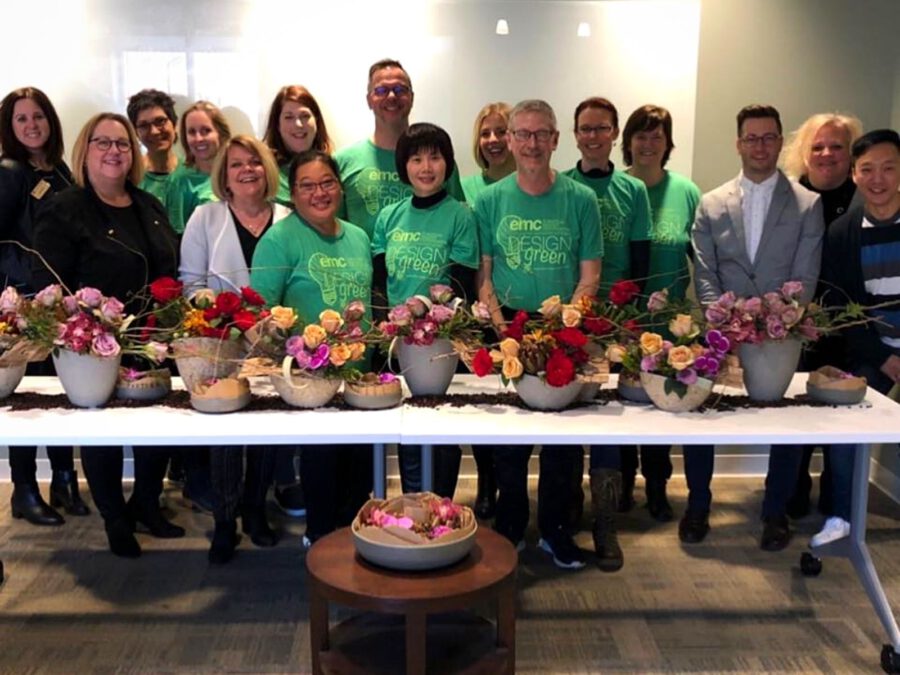
Was learning theory important to you and how did it change or develop you as a designer?
"I didn’t know what ‘theory’ meant in relation to ‘Flower Arranging’. Learning theory through EMC helped to elevate my designs. The constant interpretation of designs helped to create habits in my own mind of interpretations and design theory, and understanding that is the difference between a good design and an amazing design." - Jennifer Figge, EMC
"Learning theory has made a tremendous difference in how I approach creating designs. Now I can look at the designs by world-class designers and be able to understand how they created their work by analyzing the design using the Elements and Principals of EMC. "- Keith Stanley, EMC
"For me, learning the theory was an amazing experience in itself. The entire EMC Foundation Class was a constant revelatory process. All of a sudden, it all made sense and the theory became a foundation for all my future designs. One cannot go back to instinctive designing anymore and all the hard work I put in learning and assimilating the curriculum became my conscious way of designing from thereon."
- Diana Toma, EMC
How did nomenclature help you in your design capabilities?
"The nomenclature study strengthened my design skills via a more thorough understanding of the treatment, water requirements, seasonality, and growth habits of botanicals. This as well as knowledge of plant morphology provides a better understanding of the physical form and structure to include botanicals in a more impactful manner."
- Patti Bowman, EMC
"Nomenclature study is never easy. And, in all honesty, I never thought of how important this is until late in my process of learning. In theory, I understood the importance of knowing your medium, but the amount of information and work involved blinded me at first and made me focus only on the exam itself. Somehow, trusting the entire educational process of EMC gave me confidence that the hard work will pay off someday and it surely did. Once I started to know my way around plants and flowers, everything changed for the better: the stress of not knowing how to condition flowers were gone, the clients were responding more positive just by the fact that I was presenting flowers in their Latin names, I gained confidence in juggling with the medium we all work with and the list goes on. Nomenclature study is not just a step in the educational process to tick off a list, it is a mind-opening experience on its own."
– Diana Toma, EMC
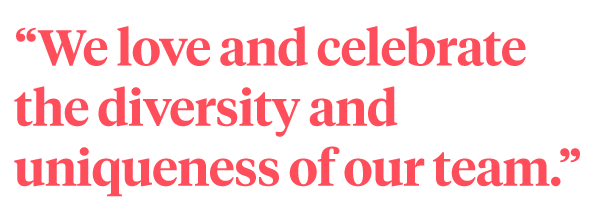
What’s your opinion about this phrase “Anyone can do it. It’s just putting a bunch of flowers in a vase”?
"In my opinion, it is as absurd as to think that anyone can take a brush and paint the Sistine Chapel, or that with a chisel and a piece of marble polish a "Pietà". Behind any artistic expression, there is, in addition to talent and creativity, study, a lot of work, and theory."
– Francisca Pas Perez Aguirre, EMC
"Floral design is an art and artists must study and continue to educate themselves to refine their craft."
- Patti Bowman, EMC
"I have no issue with this phrase. However, one might not have the essential knowledge or skills to apply to this so-called ‘simple’ task. One can keep putting the flowers in a vase, still and all, he or she might encounter the same problems as the care and handling of the botanicals, applying wrong techniques and/or having problems creating an aesthetically pleasing design."
- Sherene S Tan, AIFD EMC
In order to be a successful designer, what is the ideal balance between working hard and working smart?
"Working hard and smart is equally important. Working smart is knowing when to elevate and invest in ourselves by acquiring new knowledge and skills. We then invest our time working hard to practice and implement the skills we obtained which self-evidently unlocks our potential to be a better and successful designer."
- Sherene S Tan, AIFD EMC
"I don’t think I know anybody who works with flowers to not have worked very hard in their career. It’s a given, because of the nature of our métier, the physical effort, the creative input takes out energy and certainly counts as working hard. Working smart doesn’t in any way mean the working hard will disappear or diminish its importance. It merely means one has reached out a point in their professional life where they yearn for more, for better results, for unlimited possibilities of design, for growth as a designer. And it is rather impossible to achieve these things just by working hard."
- Diana Toma, EMC
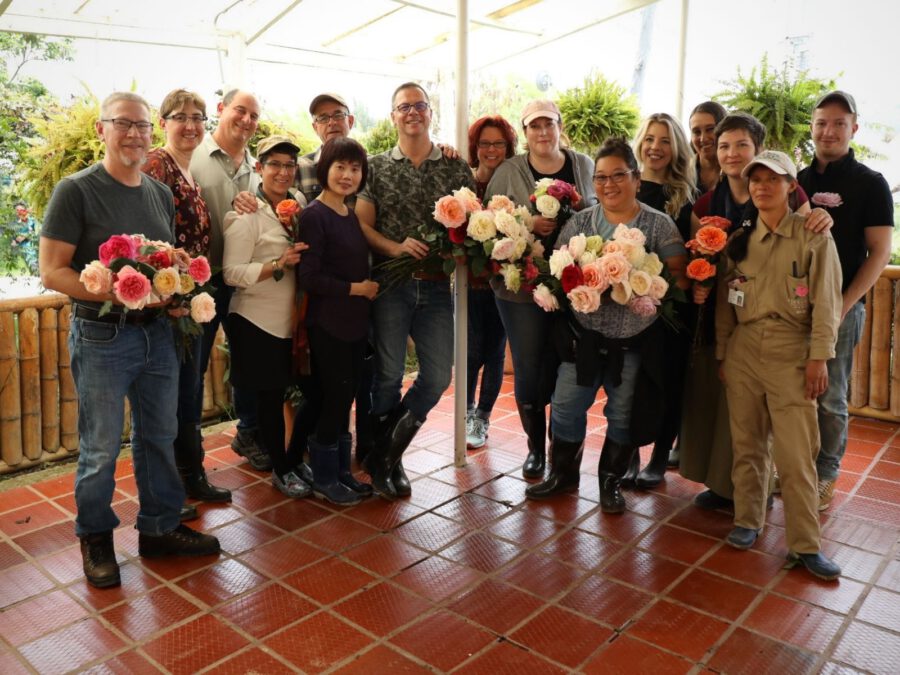
What means 'to adapt' for you? Did education help?
"Humans are always adapting to new things every day, it's the way we survive, taking as a sample everything that is happening in the world at this moment, we had to change the way we live and the way we work, and the way we interact, education is the fundamental key to help you adapt to changes and developing new systems of change."
- Jorge Uribe, AIFD EMC
"To be successful it is essential to have the knowledge that gives you the ability to do smart work. Hard work by itself, unlike popular belief, does not necessarily lead to success. The possibility of working smart allows you to guide your effort on the path that you know in advance will pay off."
– Francisca Pas Perez Aguirre, EMC
"To adapt is to change our way of thinking and explore options. As creatives, we are uniquely suited for this challenge. Having a good, solid floral design education has prepared me to find ways to adapt and to thrive during this time of uncertainty."
- Keith Stanley, EMC


 "It has been, from the beginning, a twist on any of the traditional ways of doing and thinking floral design. It has given me an intelligent and creative vision and perspective, where key concepts such as "visual impact" are the approaches with which it is possible to meet both: client and personal expectations."
– Francisca Pas Perez Aguirre, EMC
"It has been, from the beginning, a twist on any of the traditional ways of doing and thinking floral design. It has given me an intelligent and creative vision and perspective, where key concepts such as "visual impact" are the approaches with which it is possible to meet both: client and personal expectations."
– Francisca Pas Perez Aguirre, EMC




